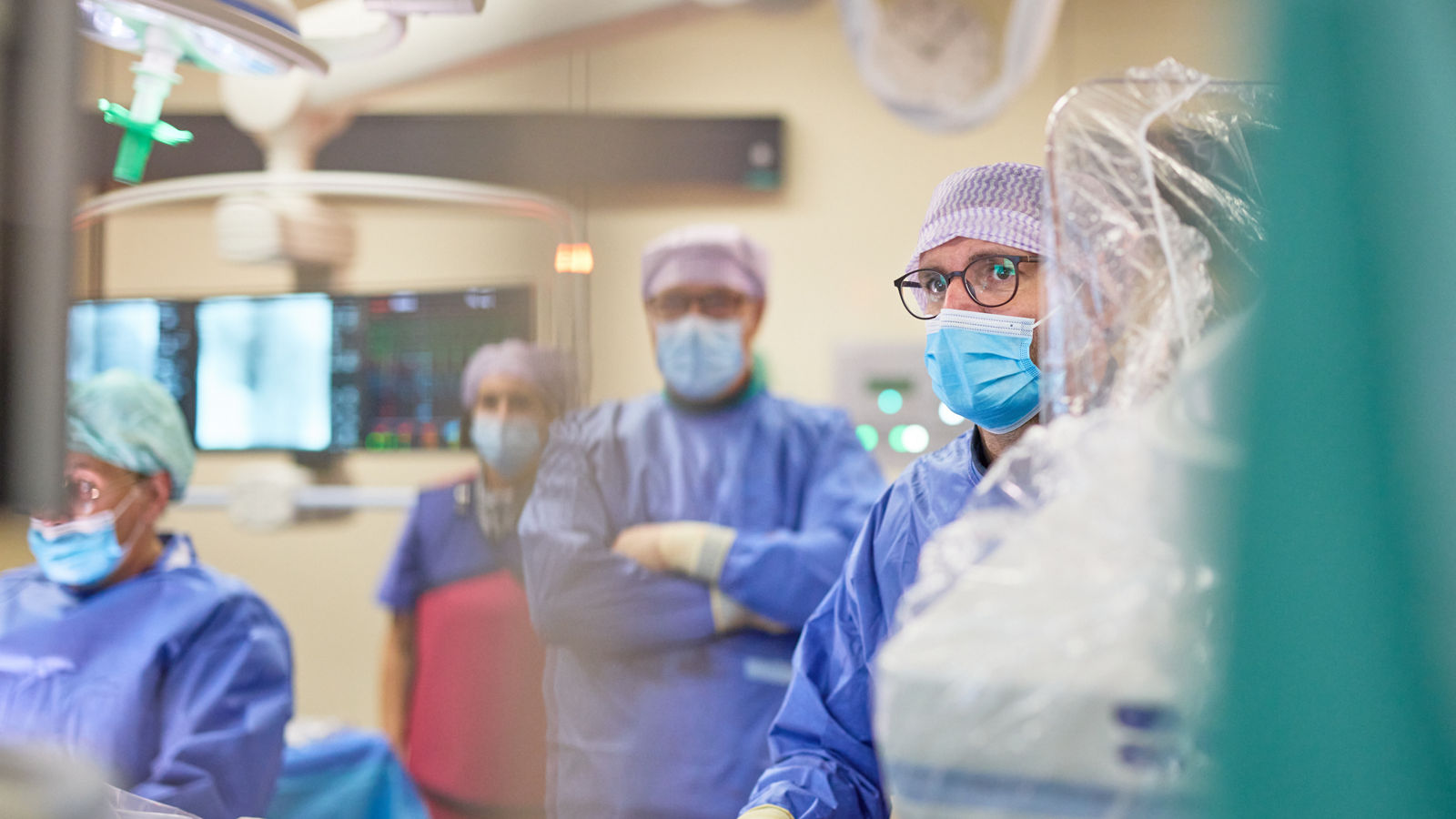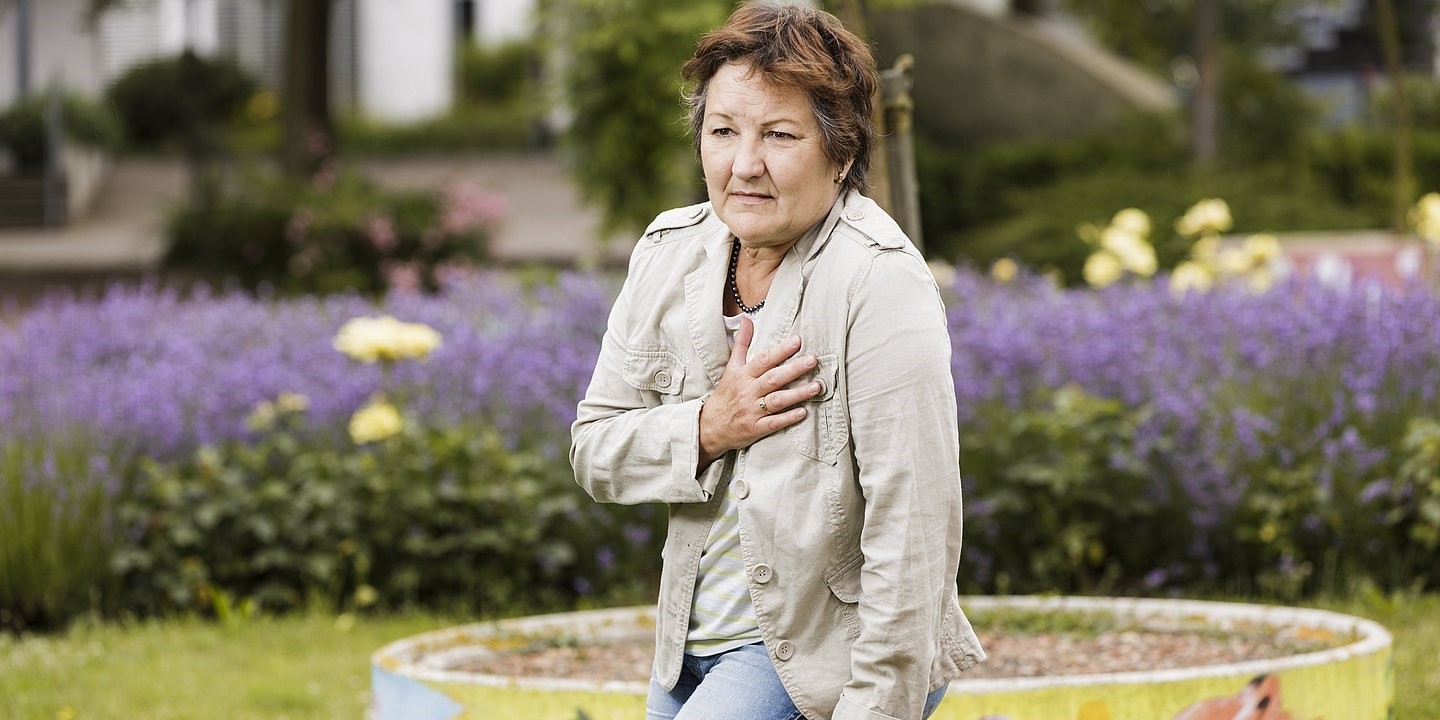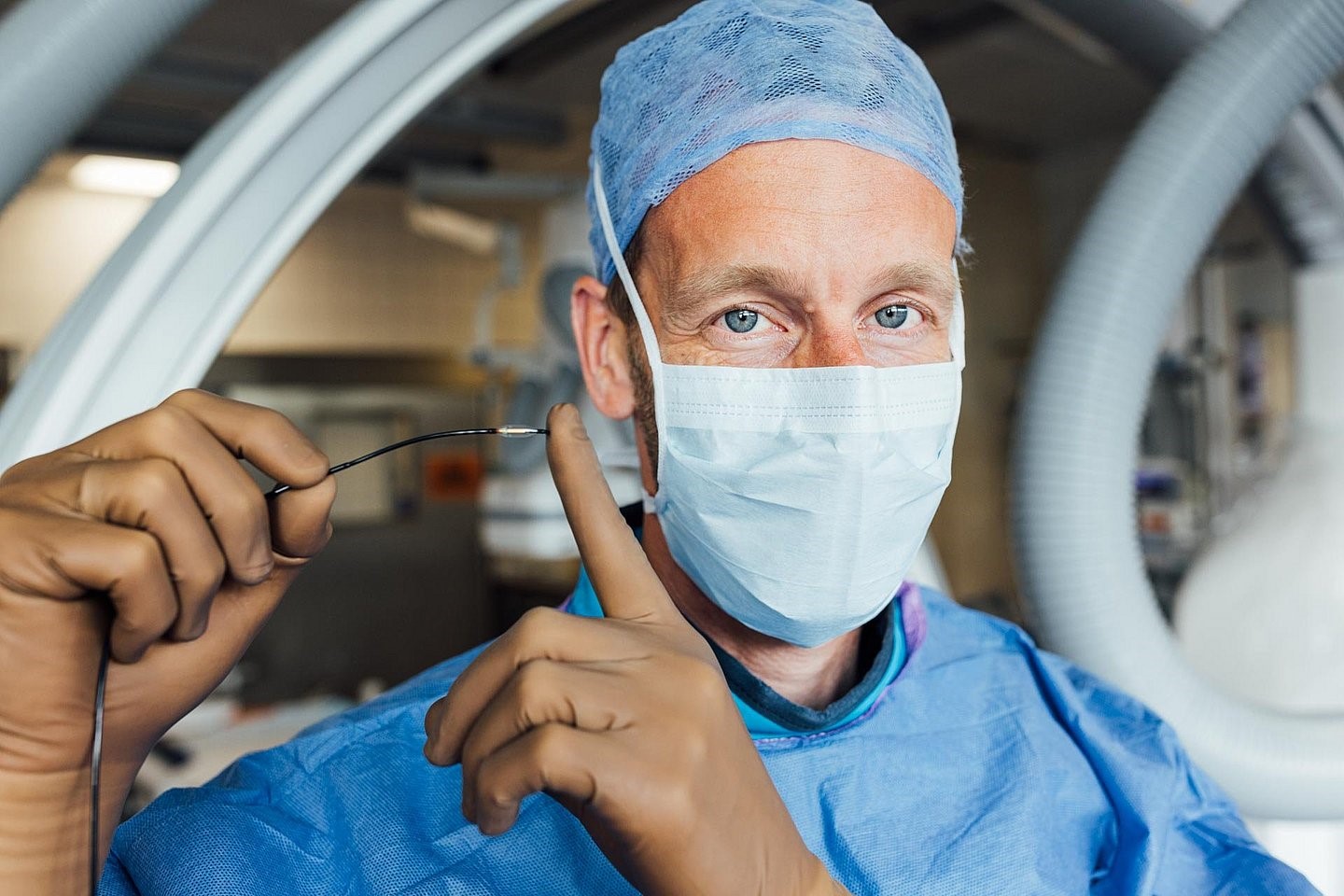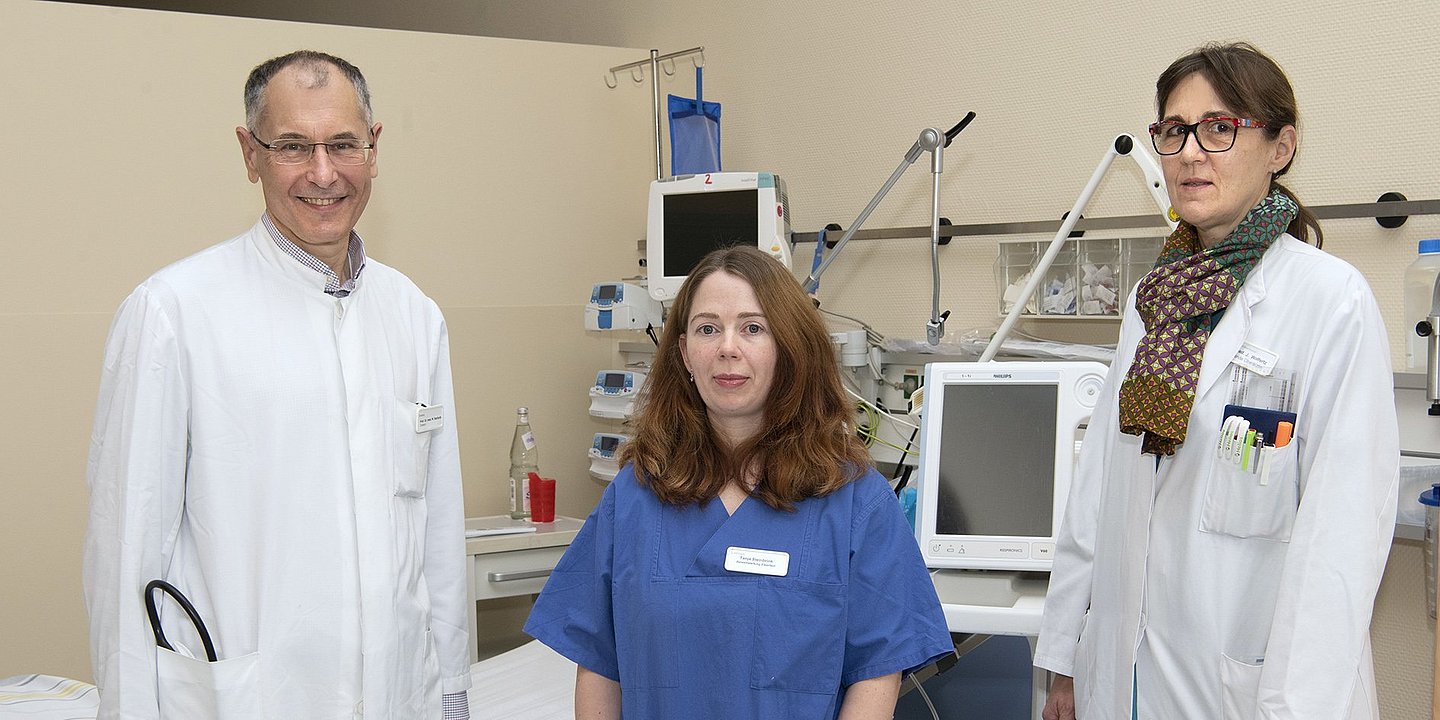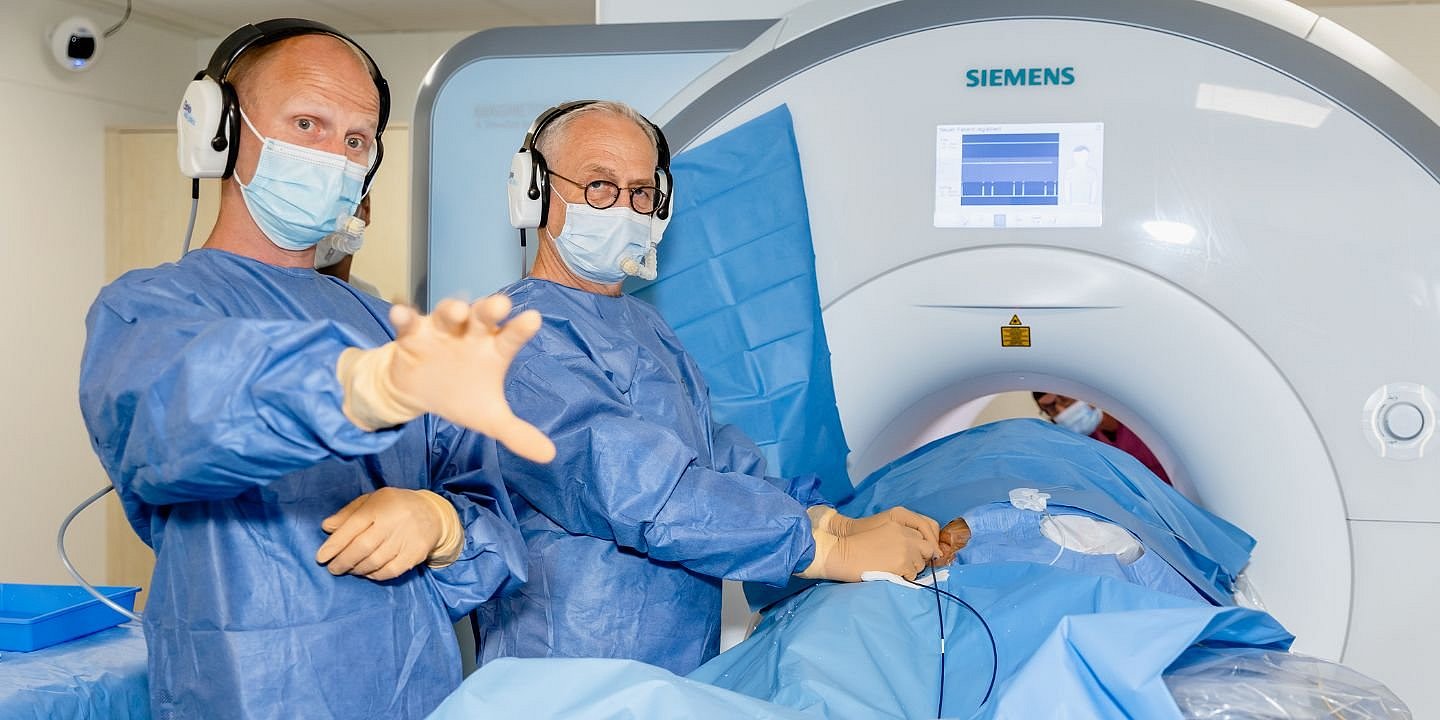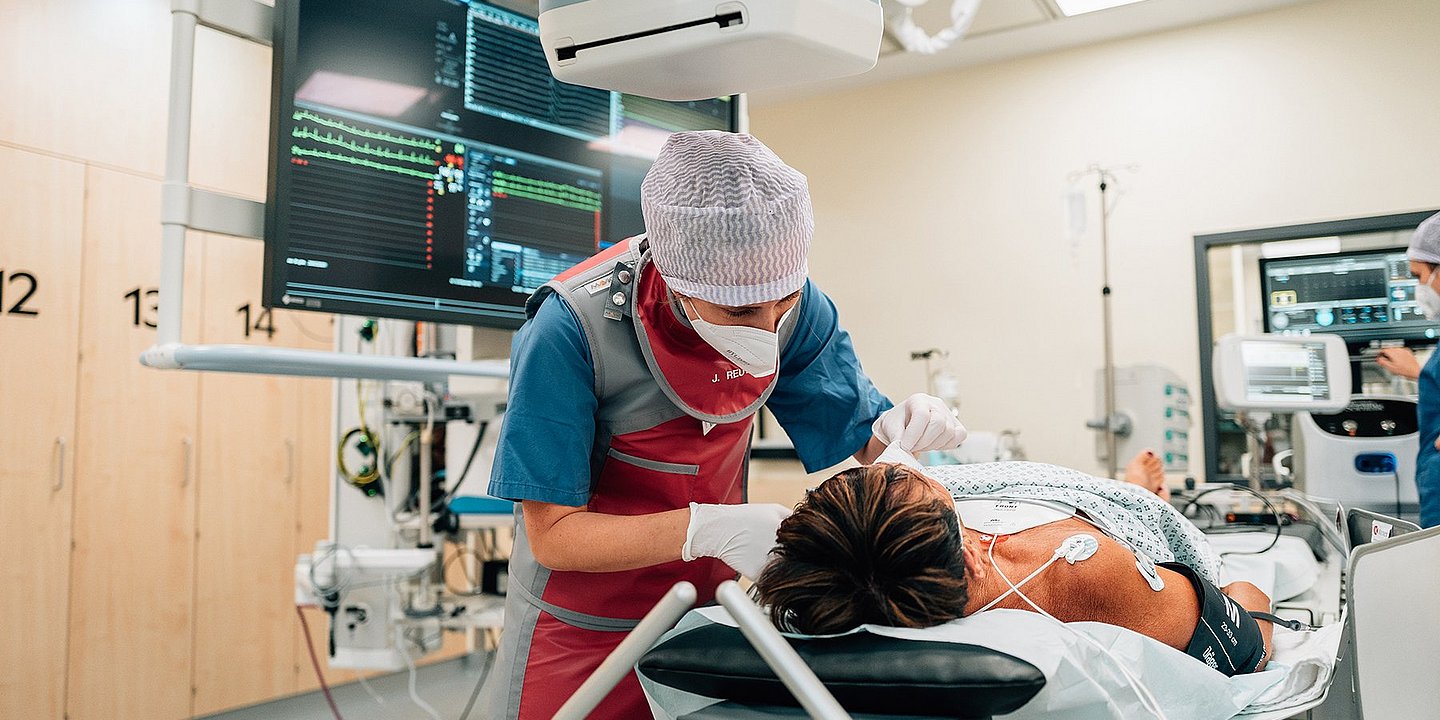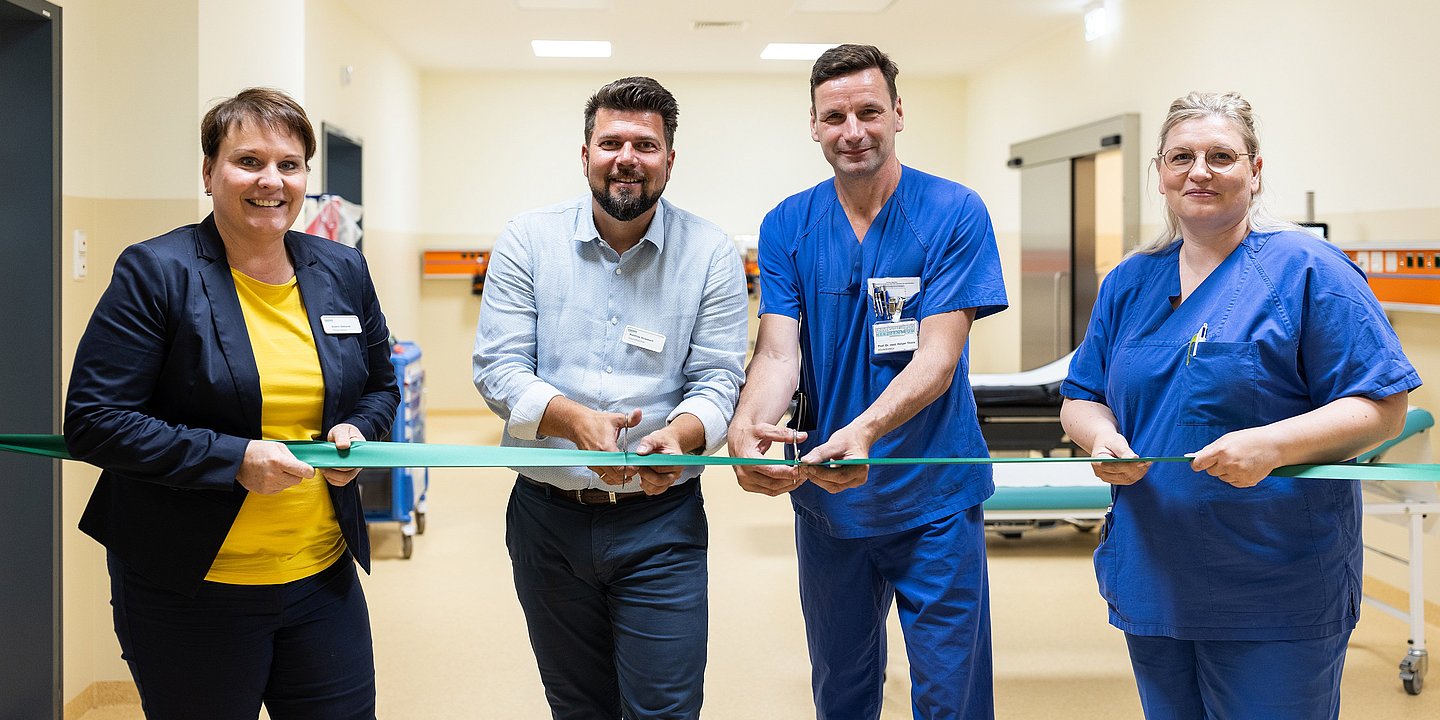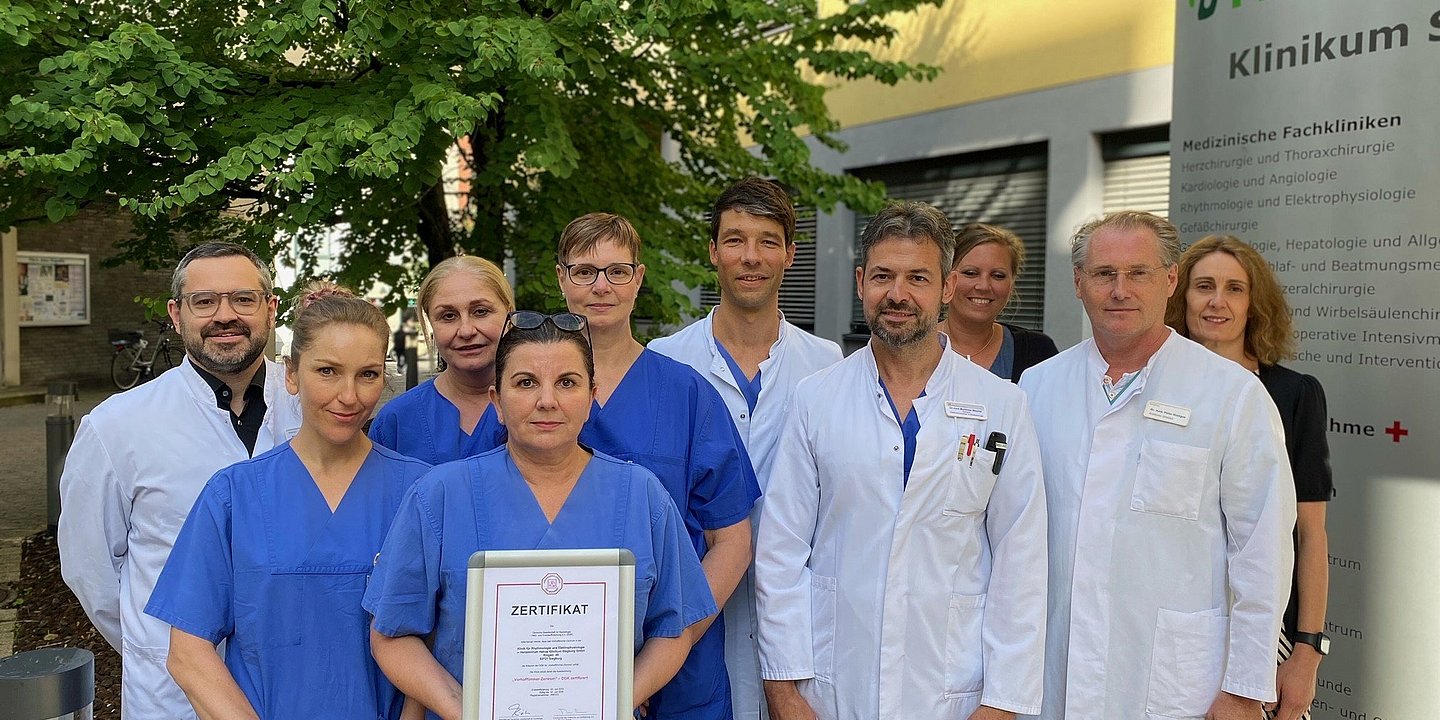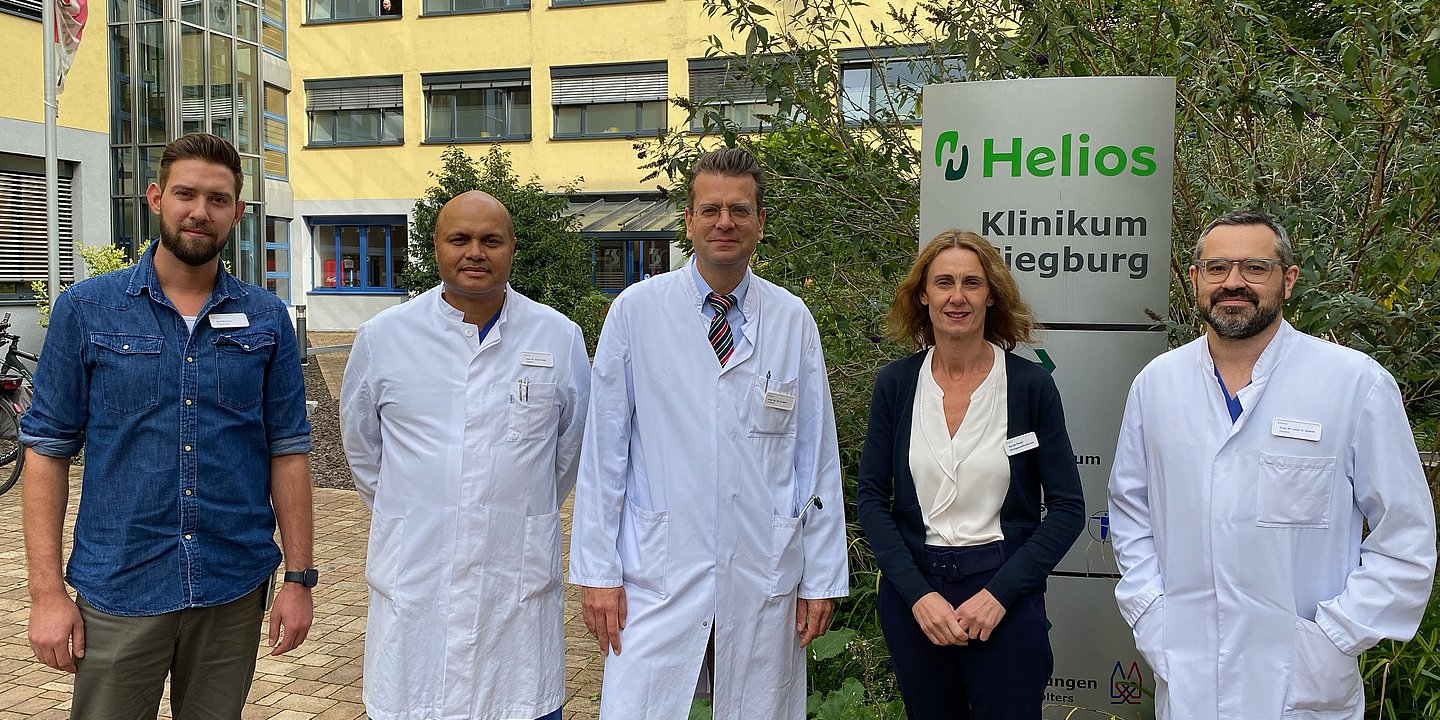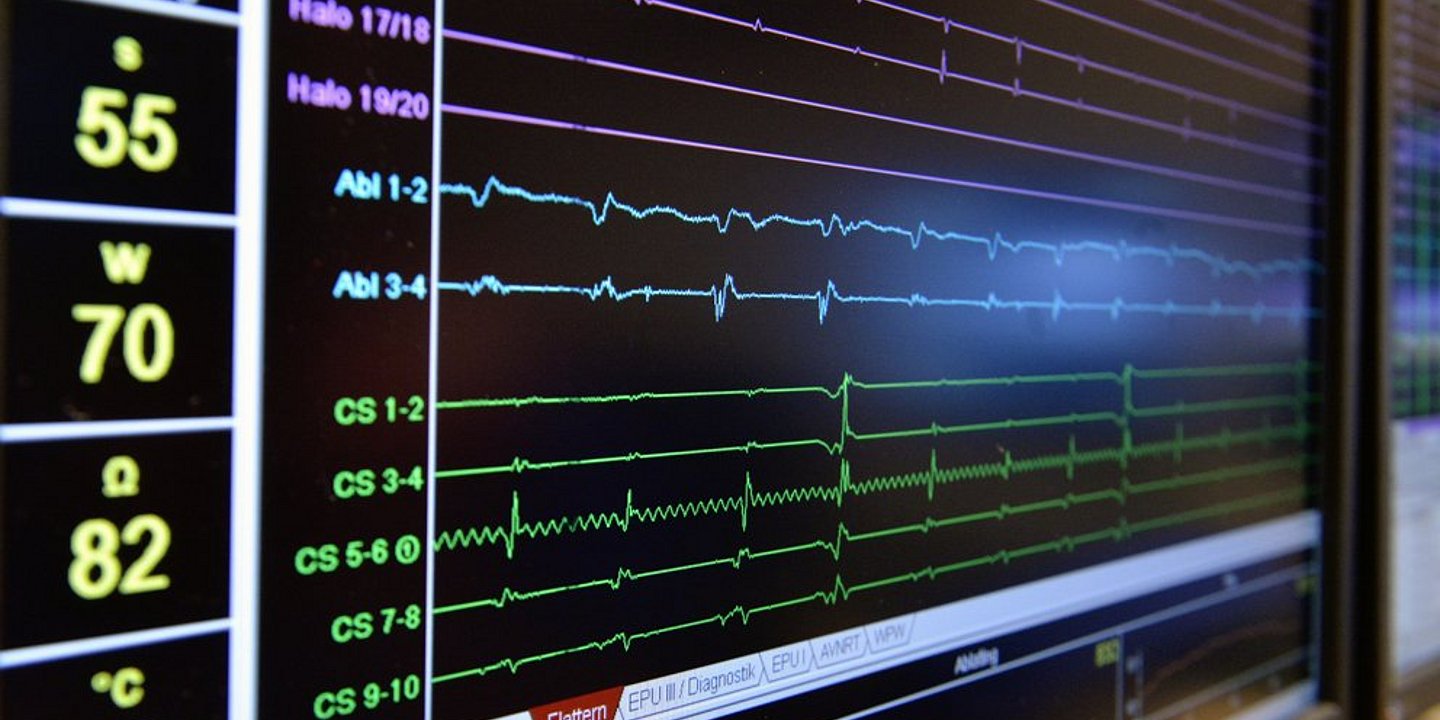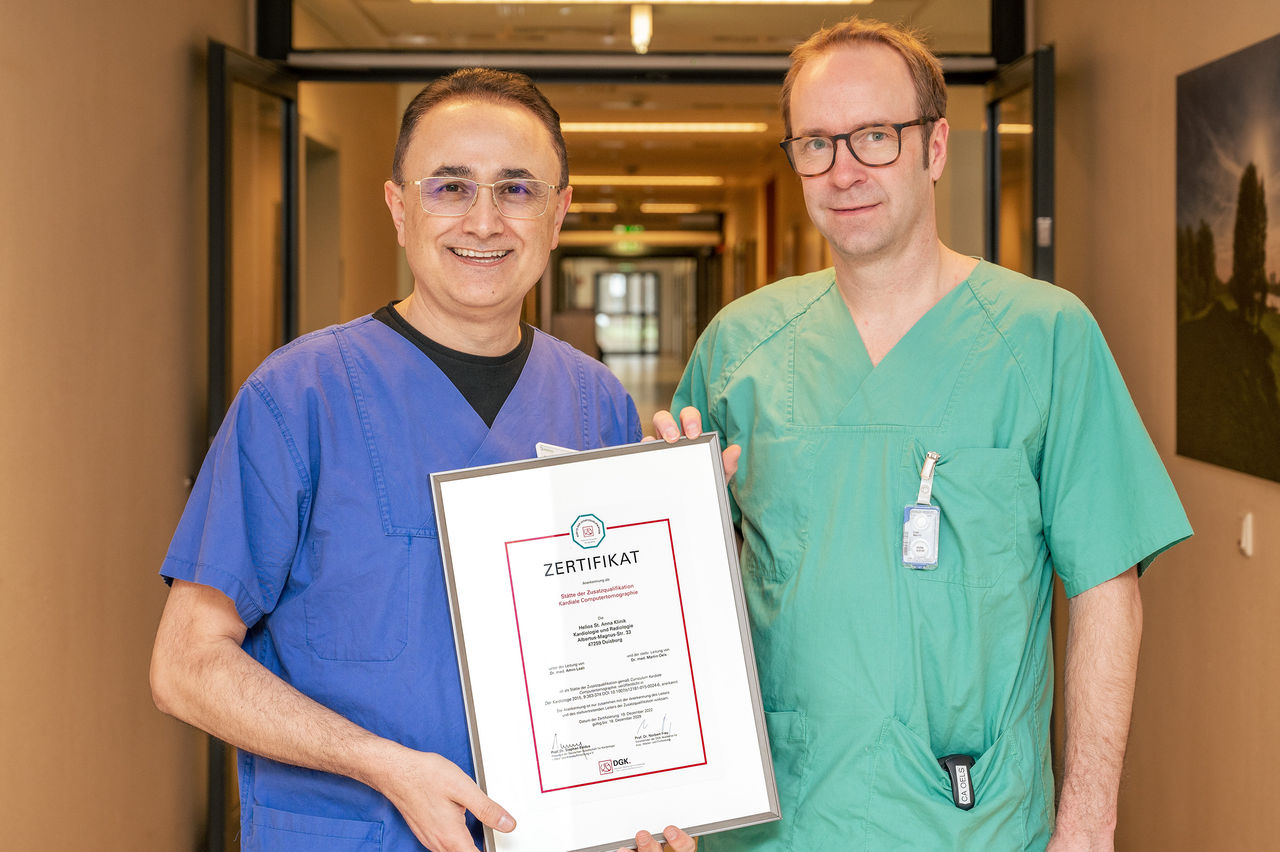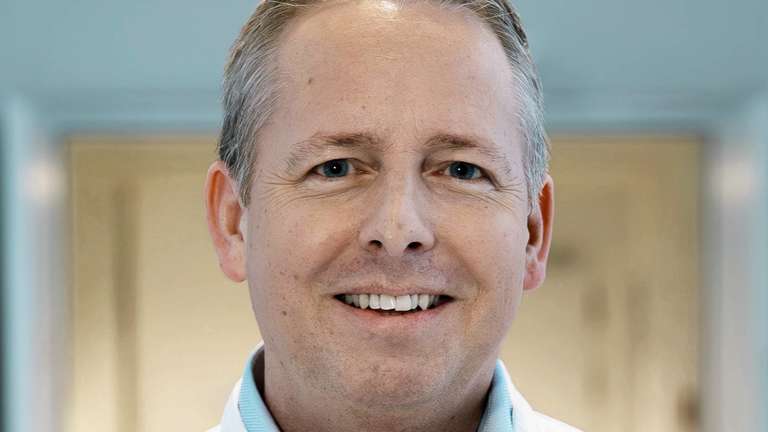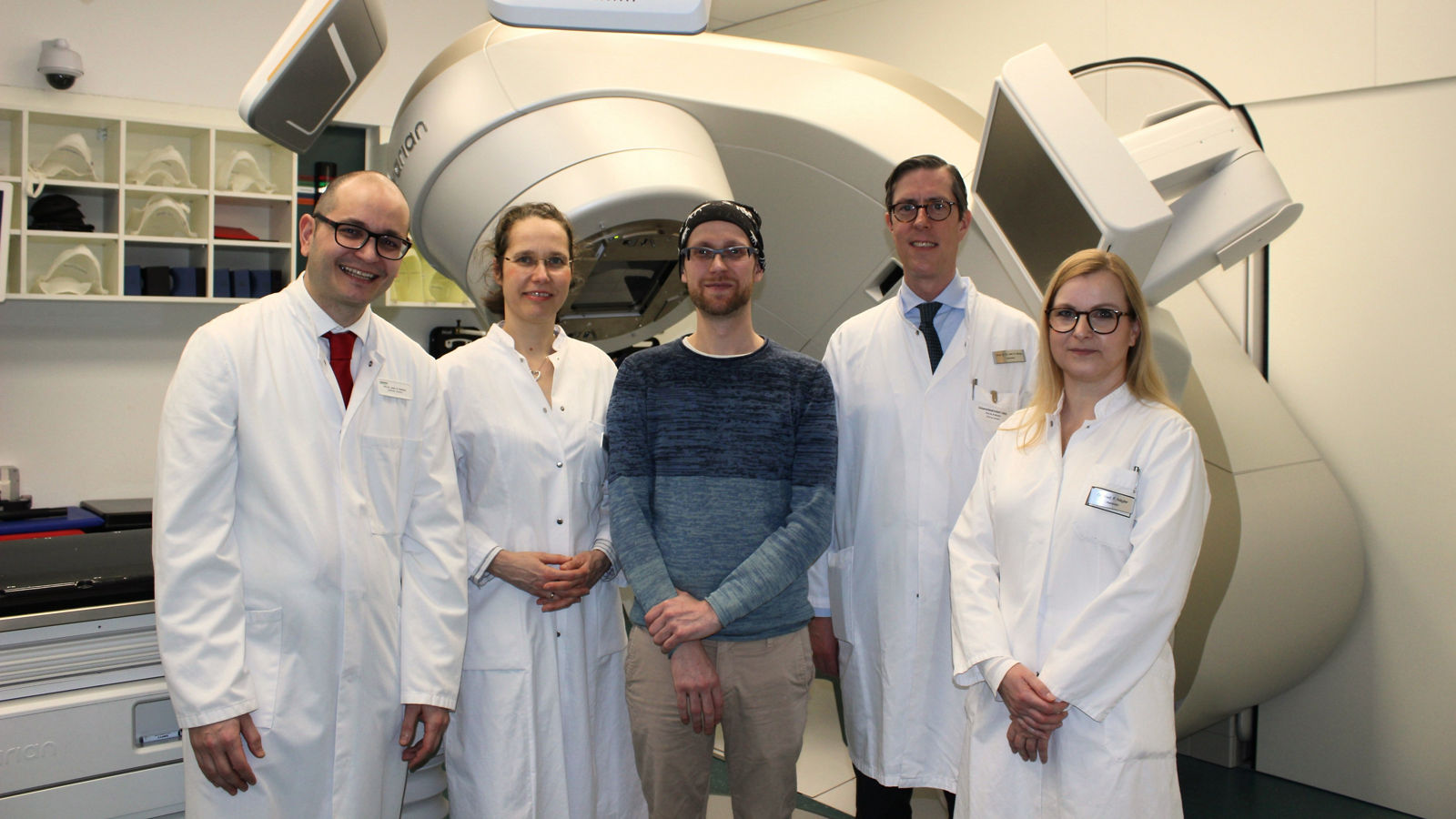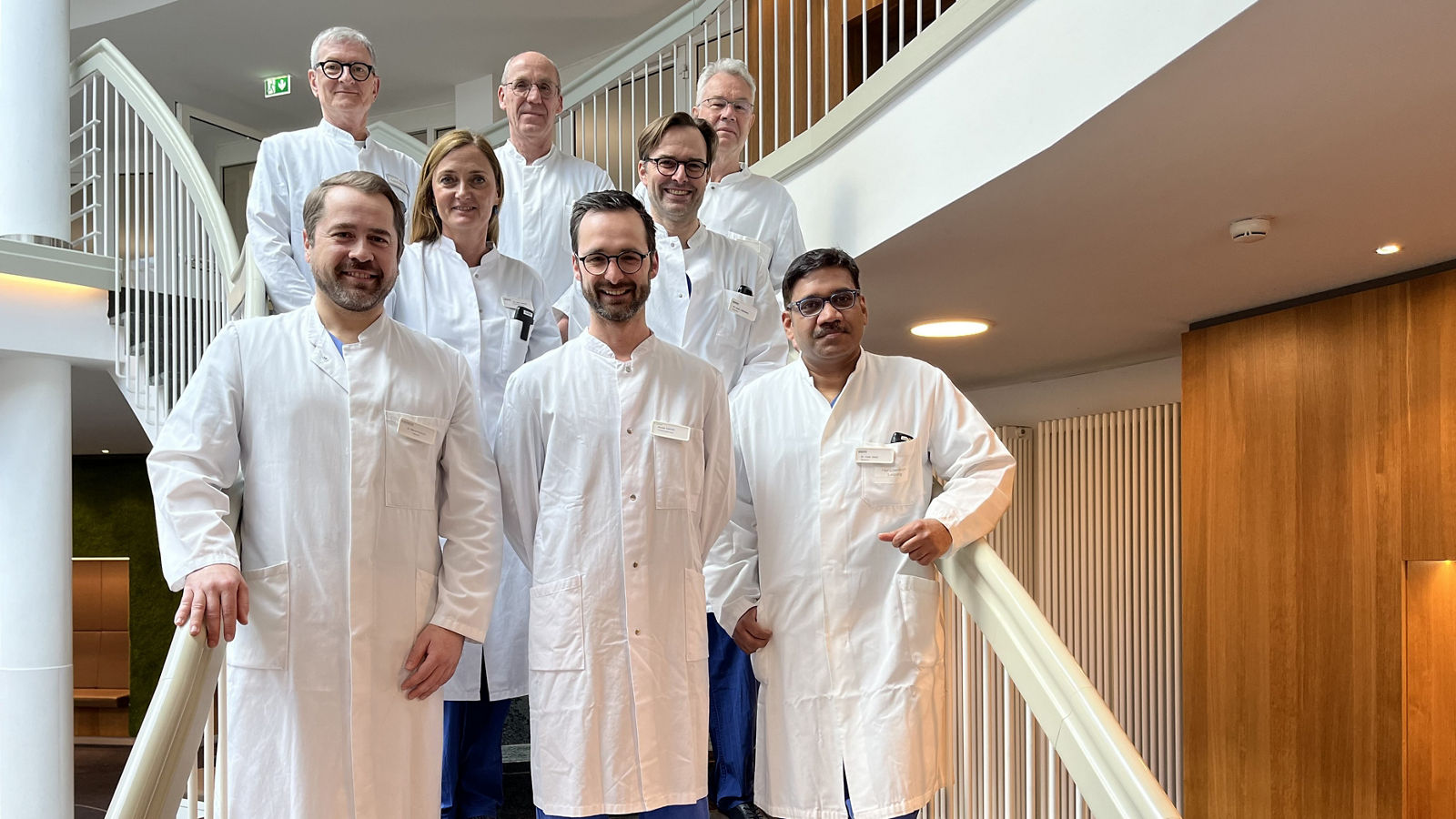Coronavirus: exacerbating heart attack
Doctors at Helios Hospitals note that with the growth of the coronavirus pandemic, the severity of heart attacks has increased, while the number of patients undergoing treatment for heart attacks in hospitals has decreased dramatically.
Heart Center Leipzig is the first hospital in Europe to apply innovative catheter placement method
For the first time ever in Europe, medical professionals of the Heart Center Leipzig have used the ultrasound renal denervation to treat uncontrolled hypertension outside of clinical trials. Several studies show that the procedure lowers a patient’s blood pressure, making it a promising adjunctive therapy in the fight against a common medical condition.
Helios Hospital Wuppertal certified as Interregional Heart Failure Unit
The cardiology department in the Helios University Hospital Wuppertal is certified as Interregional Heart Failure Unit by the German Cardiology Society (DKG).
Following an intensive review, the German Society of Cardiology (DKG) has granted certification for the state-of-the-art concept with which the Wuppertal Heart Center treats patients with cardiac insufficiency.
Cardiac MRI: Catheter ablation with MRI imaging performed for the first time in Berlin-Buch
At Helios Hospital Berlin-Buch, a catheter ablation was performed with the help of a cardiac MRI. For the first time, a team of cardiologists paired the standard procedure of catheter ablation with cardiac MRI. This new procedure promises to improve the treatment of complex cardiac arrhythmias in the future by providing real-time imaging and more precise treatment of cardiac tissue. The head of the Heart Rhythm Center Berlin/Brandenburg at Helios Hospital Berlin-Buch, Dr. med. Michael Wiedemann, explains the innovative procedure in an interview.
New cardiac catheterization laboratories at Helios Hospital Bonn/Rhein-Sieg
The cardiology department at Helios Hospital Bonn/Rhein-Sieg opens two new cardiac catheterization laboratories after several months of construction. Patients with coronary artery disease, acute myocardial infarction, arrhythmias or valvular heart disease can be optimally treated in the large procedure rooms with state-of-the-art imaging.
Helios Heart Center Leipzig: Quick reactions in case of cardiac emergencies
Today, the Heart Center Leipzig opened its expanded and modernized Chest Pain Unit (CPU) together with a Syncope and Rhythm Unit after previous renovation work. Colloquially known as the chest pain outpatient clinic, the certified Chest Pain Unit is available around the clock for cardiac emergencies.
Helios Hospital Siegburg: Certification as atrial fibrillation center
The Heart Center at Helios Hospital Siegburg is a new certified atrial fibrillation center. The certificate is awarded by the German Society of Cardiology - Cardiovascular Research (DKG) and confirms the hospital's high therapeutic standards in the treatment of cardiac arrhythmias. The Siegburg Heart Center is one of around 70 centers nationwide to be awarded this quality mark.
Helios Hospital Siegburg - Prof. Dr. Marc Vorpahl new Head of Cardiology, Rhythmology and Angiology
Prof. Dr. med. Marc Vorpahl, a highly experienced cardiologist, joined the senior medical management team of Cardiology, Rhythmology and Angiology on October 1, 2023. The 48-year-old moved from Helios University Hospital Wuppertal to the Heart Center in Siegburg. He succeeds Prof. Dr. med. Peter Boekstegers.
Helios Hospital Siegburg - Interview with Prof. Dr. med. Marc Vorpahl
Prof. Dr. Marc Vorpahl has been the new Head of Cardiology, Rhythmology and Angiology at Helios Hospital Siegburg since October 1. In this interview, he explains what particularly fascinates him about the cardiology department and what he focuses on in his work for the Siegburg Heart Center.
Helios Rhein-Ruhr Hospitals Duisburg: Certification and additional qualification in cardiac CT
As one of 22 centers in Germany, Helios St. Anna Klinik is now accredited by the German Society of Cardiology (DGK) - Cardiovascular Research e. V. as a "site for additional qualification in cardiac computed tomography".
Expert in cardiac arrhythmia strengthens Helios Amper-Hospital Dachau
Dr. med. Michael Ulbrich has recently joined the cardiology team at the Helios Amper-Hospital Dachau as medical director. The award-winning expert in cardiac arrhythmias brings a wealth of experience with him.
Helios Hospital Schwerin awarded as Cardiac Arrest Center
Helios Hospital Schwerin has been awarded the title of "Cardiac Arrest Center". This confirms the hospital's high level of expertise in the treatment of cardiac arrest.
Helios Schwerin: New method used for resistant hypertension
What sounds unusual at first is actually a new therapy method in cardiology. The Helios Hospital in Schwerin has used it for the first time in Mecklenburg-Western Pomerania to treat high blood pressure, which previously could not be controlled despite therapy.
Heart Center Leipzig: New therapy method for cardiac arrhythmias
Heart Center Leipzig and Leipzig University Hospital have successfully applied a new treatment method to a patient with a potentially life-threatening cardiac arrhythmia. In what is known as "stereotactic arrhythmia radioablation" (STAR), the affected tissue is treated in a state-of-the-art procedure using high-dose radiation with maximum precision in order to reduce the electrical excitability of this area. The two clinics intend to offer this new procedure jointly in the future.
Helios Berlin-Buch: Treatment of severe cardiac arrhythmias using smartwatches
After contracting Covid-19, 37-year-old pediatrician Ewelina Niewiadomska complains of palpitations. After months of complaints, the patient was referred to the Heart Rhythm Center at Helios Hospital Berlin-Buch with life-threatening cardiac arrhythmia. There she was successfully treated by the head of the center and cardiologist Dr. Michael Wiedemann. Since then, the young mother's heart has been beating at the right rhythm again.
Helios München West: Prof. Dr. Sebastian Kufner expands cardiology expertise
At the beginning of the year, Prof. Dr. med. Sebastian Kufner joined the management team of the Clinic for Cardiology and Internal Intensive Care Medicine at Helios Hospital München West. With his expertise in the fields of interventional cardiology and intensive care medicine, he strengthens the clinic as a supra-regional focus of care for cardiovascular diseases.
Helios locations in Leipzig create multidisciplinary center for adults with congenital heart defects
As a specialist clinic for cardiovascular diseases and the only certified, supra-regional EMAH center in Central Germany, Heart Center Leipzig has been treating children and adults with congenital heart defects (EMAH) since it was founded. The range of services is now being expanded together with the Helios Park-Hospital Leipzig: EMAH patients can also receive comprehensive and safe treatment for non-cardiac diseases in Leipzig thanks to the specialist expertise of both clinics.
